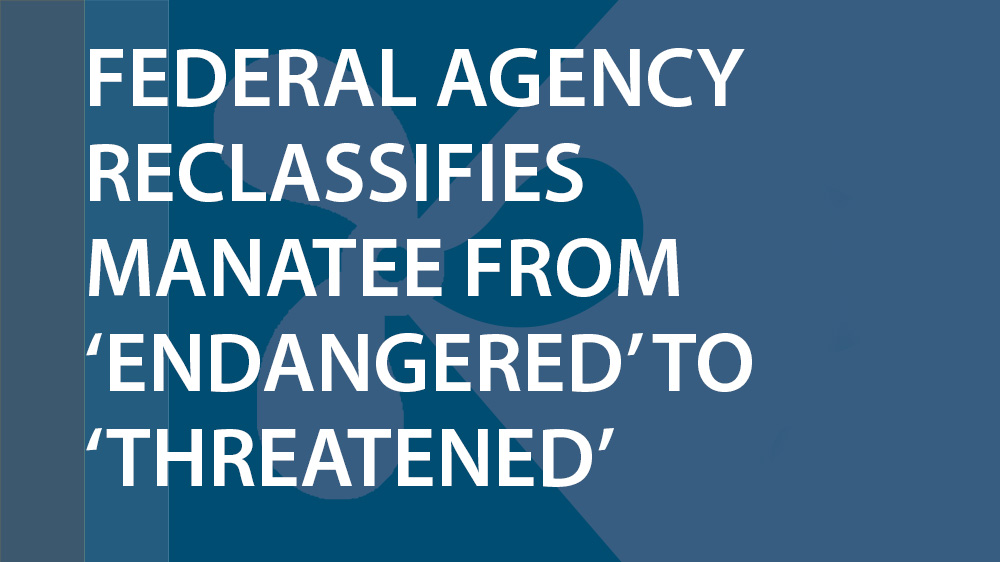By Bruce Ritchie
03/30/2017 05:41 PM EDT
TALLAHASSEE — The West Indian manatee is being downgraded from endangered to threatened under federal law, the U. S. Fish and Wildlife Service announced Thursday.
The lumbering sea cow, Florida’s state marine mammal, is the focus of disputes over boating speed zones and in areas where people flock to see or swim with them.
The federal agency said the manatee is being downgraded because it no longer is on the brink of extinction. And any protections now in place now will remain with the reclassification, agency officials said.
“The protection under the status of threatened are no less than under the status of endangered,” said Larry Williams, the ecological services program manager for the federal agency in Florida.
But some environmentalists say the change isn’t warranted because the species remains at risk.
The agency said in January 2016 that a variety of protective measures had helped increased populations by 500 percent in the past 25 years. The Florida manatee population had increased from an estimated 1,267 in 1991 to more than 6,620 now.
Jaclyn Lopez, Florida director of the Center for Biological Diversity, said in response to the announcement that manatees remain in danger.
“Thanks to the safety net of the Endangered Species Act, broad public support and conservation efforts by the state, manatee numbers have improved over the past few decades,” Lopez said in a statement. “With ongoing threats posed by boat strikes and habitat loss, we don’t support reducing protections through down-listing yet.”
Patrick Rose, executive director of the Save the Manatee Club, said the reclassification is premature because of massive die-offs and potential loss of habitat, including sea grass areas, springs and warm-water power plant discharges.
“Florida continues to not deal with its environmental problems to keep up with the impact of growth and development,” said Rose, an aquatic biologist.
But federal officials pointed to a number of steps taken by state officials including manatee speed zones, retrofitting water control structures to reduce manatees being caught or crushed and increasing manatee access to springs.
Manatee boating zones remain an issue of contention with some boat owners questioning their necessity as the number of manatees increase. The Florida Fish and Wildlife Conservation Commission said boats killed a record 104 manatees in 2016, according to news reports.
Last year, House Bill 1273 would have required the state agency to conduct a study of the effectiveness of manatee speed zones including the extent the risk to manatees are reduced. The bill died after passing one committee stop.
Federal officials suggested the species reclassification would not allow speed zones to be repealed automatically. Those zones must be reviewed periodically in the 13 counties where they are required and can be changed based on available data.
Outside the United States, manatee population and abundance estimates are less certain, the Fish and Wildlife Service says. There are likely as many as 6,300 Antillean manatees spread over a much broader range, from the Mexican Gulf coast to northern Brazil and the Caribbean.
To view online:
http://www.politico.com/states/florida/whiteboard/2017/03/federal-agency-removes-manatee-from-endangered-species-act-110895

